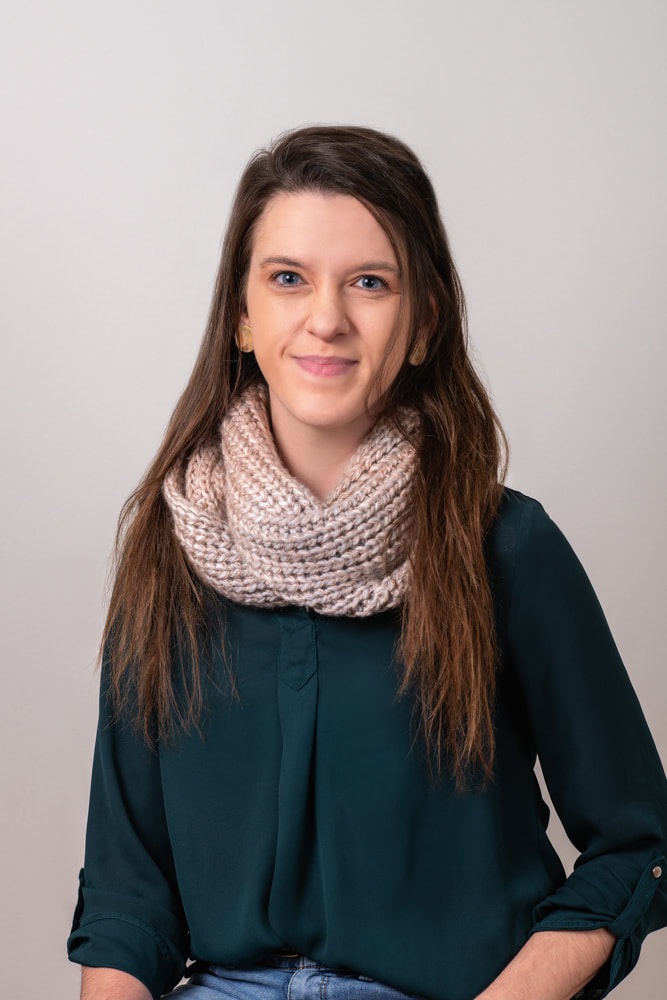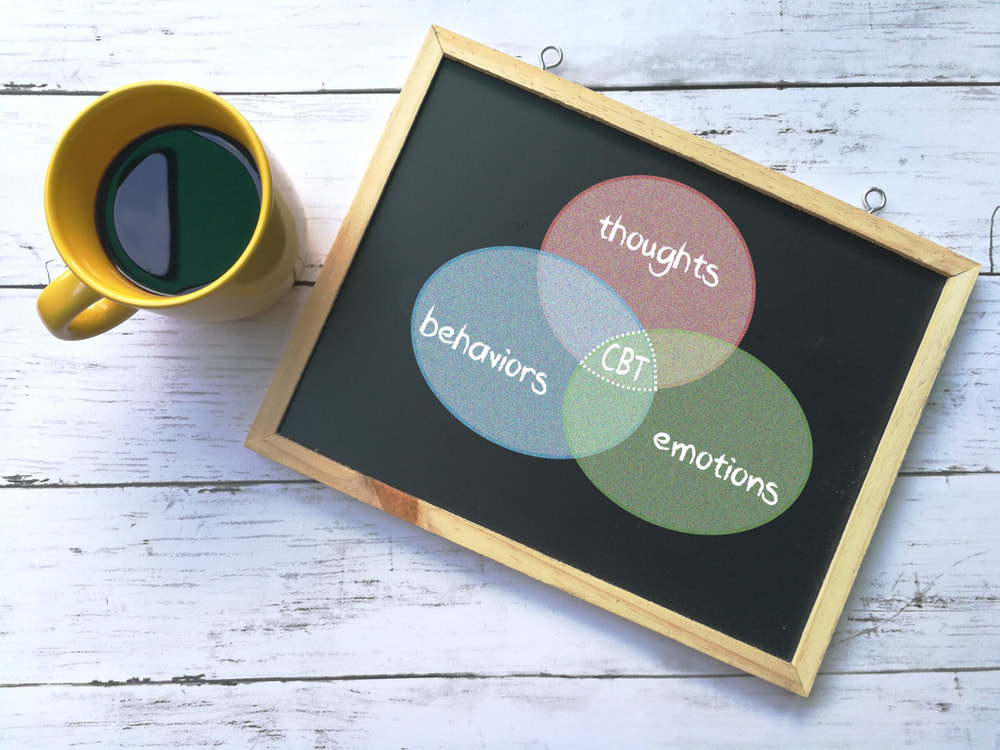Anna Perkowski, MSW, LCSW
|
Masters of Social Work
Licensed Clinical Social Worker To make an appointment with Anna, please call 630-570-0050. You can also email [email protected].
Specializes In:Depression, Grief and Bereavement, Anxiety, Worry/Generalized Anxiety Disorder, Self-Esteem Concerns, Parent-Child Relational/Communication Concerns, Social Anxiety, Trauma
Ages Served: Pre-teen/Adolescents (10+), Adults |
Professional Experience
I received my Bachelor and Master of Social Work degree from Aurora University. While at Aurora University, both my undergrad and graduate internships included working with at-risk youth whether that meant providing oversight to after-school youth programming or conducting school-based individual therapy sessions. The bulk of my post-education work has focused on continuing to integrate my passion of supporting and empowering our youth and equipping their support systems (think parents/caregivers/community providers) to do so as well. I worked as a case manager and supervisor within the private sector of a child welfare program designed to support families in remaining intact for just short of 5 years. This work included adopting a trauma-focused and trauma-informed approach when working with diverse individuals and families which has also proven invaluable in my work to-date as a therapist.
Specializations and Treatment Approach
I currently treat:
Depression
Grief
Anxiety Disorders
Social Anxiety
Worry/Generalized Anxiety Disorder
Self-Esteem Concerns
Parent-Child Relational/Communication Concerns
Trauma
Showing up to therapy takes effort, whether for the 1st time or the 100th time. In my practice, I am intentional with holding space for pre-teen clients, adolescents, young adults, and parents. If you fit into any of these categories, chances are high, unfortunately, that you're probably no stranger to having lived through experiences that have evoked feelings of depression and anxiety, or feeling out of control, in your life. One of the best parts of this work for me is equipping you in bridging the gap between where you currently are in relation to your goals and where you want to be. I like to tell my clients that we're gonna build a bridge together - I will teach you skills and give you tools to learn a new way of relating to yourself and others and you will start to build that bridge and experience connection.
Cognitive Behavioral Therapy (CBT) partnered with a strength-based and trauma-informed approach is one of the ways I work with clients to build these bridges toward healing. I also implement mindfulness techniques and operate out of a family systems model within sessions when appropriate to the client's needs.
Communication is simple, but yet so difficult. I am a firm believer that practice makes progress and therefore, I also love implementing role playing behavior in sessions as another way for clients to gain confidence and competence in their ability to experience healing and connection.
Depression
Grief
Anxiety Disorders
Social Anxiety
Worry/Generalized Anxiety Disorder
Self-Esteem Concerns
Parent-Child Relational/Communication Concerns
Trauma
Showing up to therapy takes effort, whether for the 1st time or the 100th time. In my practice, I am intentional with holding space for pre-teen clients, adolescents, young adults, and parents. If you fit into any of these categories, chances are high, unfortunately, that you're probably no stranger to having lived through experiences that have evoked feelings of depression and anxiety, or feeling out of control, in your life. One of the best parts of this work for me is equipping you in bridging the gap between where you currently are in relation to your goals and where you want to be. I like to tell my clients that we're gonna build a bridge together - I will teach you skills and give you tools to learn a new way of relating to yourself and others and you will start to build that bridge and experience connection.
Cognitive Behavioral Therapy (CBT) partnered with a strength-based and trauma-informed approach is one of the ways I work with clients to build these bridges toward healing. I also implement mindfulness techniques and operate out of a family systems model within sessions when appropriate to the client's needs.
Communication is simple, but yet so difficult. I am a firm believer that practice makes progress and therefore, I also love implementing role playing behavior in sessions as another way for clients to gain confidence and competence in their ability to experience healing and connection.
About Me
What are your professional and personal values?
Some of my core values that shape my daily interactions are: generosity, loyalty, humor, patience, and creativity. In the seasons when life is rough, I've found it can be helpful to reframe some of those challenging moments as opportunities to be patient and maybe, get creative. A sense of humor and acts of generosity can also go a long way in creating an abundant inner landscape of mental health and wellbeing as well as adding to that for others.
What are some adjectives you would use to describe yourself?
I would describe myself as mellow, kind of awkward and funny, caring, quietly confident, and approachable. For those of you who love the Enneagram, I definitely look like a "9" - as a therapist and a type 9, I think clients will experience me as non-judgmental, empowering, and a thoughtful listener.
What are some of your favorite self-care activities?
I really enjoy training for and running marathons. I am a firm believer that physical activity is important in sustaining overall health, including mental health. Outside of that, I enjoy taking my dog on road trips and walks, and baking new recipes.
What is your favorite quote/some of your favorite quotes?
"You either walk inside your story and own it or you stand outside your story and hustle for your worthiness.” - Brene Brown
What is the most profound, meaningful, or interesting thing you've learned or experienced as a mental health professional? Why do you love being a mental health professional?
Being able to witness client's stories, joys, struggles, and effort is exciting and meaningful to me as a therapist. I like to tell my clients at the start of our work together that the relationship they have with themselves is one of the most important ones they have since, well, they take themselves everywhere they go. Seeing clients do the work of mending their relationship with themselves, believing that they matter, is so cool.
Some of my core values that shape my daily interactions are: generosity, loyalty, humor, patience, and creativity. In the seasons when life is rough, I've found it can be helpful to reframe some of those challenging moments as opportunities to be patient and maybe, get creative. A sense of humor and acts of generosity can also go a long way in creating an abundant inner landscape of mental health and wellbeing as well as adding to that for others.
What are some adjectives you would use to describe yourself?
I would describe myself as mellow, kind of awkward and funny, caring, quietly confident, and approachable. For those of you who love the Enneagram, I definitely look like a "9" - as a therapist and a type 9, I think clients will experience me as non-judgmental, empowering, and a thoughtful listener.
What are some of your favorite self-care activities?
I really enjoy training for and running marathons. I am a firm believer that physical activity is important in sustaining overall health, including mental health. Outside of that, I enjoy taking my dog on road trips and walks, and baking new recipes.
What is your favorite quote/some of your favorite quotes?
"You either walk inside your story and own it or you stand outside your story and hustle for your worthiness.” - Brene Brown
What is the most profound, meaningful, or interesting thing you've learned or experienced as a mental health professional? Why do you love being a mental health professional?
Being able to witness client's stories, joys, struggles, and effort is exciting and meaningful to me as a therapist. I like to tell my clients at the start of our work together that the relationship they have with themselves is one of the most important ones they have since, well, they take themselves everywhere they go. Seeing clients do the work of mending their relationship with themselves, believing that they matter, is so cool.
Anna's Blogs:
|
Our thoughts are powerful. I think this becomes super evident during times of stress - all of a sudden, it's easy to downward spiral into thinking "nothing ever works out," "I always mess it up," and "nobody cares." The key is to slow down and recognize when words such as "always," "ever," "never," "nobody," and "everybody" play through your mind. Part two is to become curious. Some examples of becoming curious about these thoughts are: "Things have NEVER worked out before?", "Is there an example of a time when something did work out well?", "Do I ALWAYS mess things up?" "Is there a time where I did something and found success?"...(to read more, click on the link above).
|
|
Welcome to the month of Men’s Health! This week of June 12-18 is particularly focused on discussing men’s health and ways to support men in improving quality of life across all domains: mental health, physical health, social health, spiritual health, financial health. Men’s mental health is everyone’s responsibility. According to the American Foundation for Suicide Prevention, ”the rate of suicide is highest in middle aged white men. In 2021, men died by suicide 3.90x more than women. White males accounted for 69.68% of suicide deaths in 2021.” This sobering statistic offers an opportunity to openly discuss suicide prevention and the mental health struggles that can plague men in silence...(to read more, click on the link above).
|
|
The concept of boundaries has seemed to take off in the social media realm and in therapy offices alike. The Merriam-Webster Dictionary defines a boundary as “something that indicates or fixes a limit or extent.” Boundaries apply to things like property lines and city limits, and they also apply to both intrapersonal and interpersonal relationships. Boundaries are an opportunity to determine how and when we will utilize our innate and external resources such as emotional capacity, verbal and non verbal communication, time, and money, to name a few things, when we relate to ourselves and other people in our lives, for the purpose of creating and maintaining safe and satisfying relationships...(to read more, click on the link above).
|
|
June is Men’s Health Month and as such, I thought this would be a great opportunity to bring continued awareness to the topic. Health includes a multitude of factors in one’s life, including but not limited to: physical health, social health, mental health, spiritual health, and financial health. I have noticed both throughout my personal and professional life that men tend to neglect their health in more than one of these categories more often than women, sometimes with dire consequences, and that is why I am intentional about providing therapy to our male population in the areas of treating and working with depression, anxiety, trauma and grief...(to read more, click on the link above).
|






